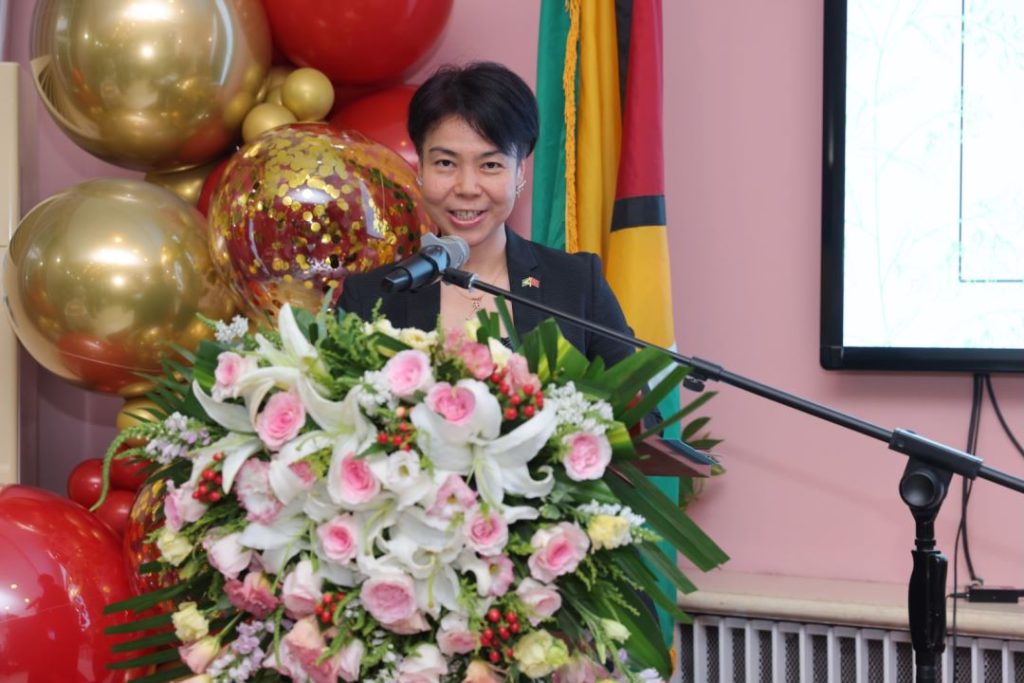Opportunities exist for new partnerships with China – Ambassador Choo

By Fareeza Haniff in Beijing
With Guyana projected to become one of the fastest growing economies in Latin America and the Caribbean, there could be new opportunities for increased trade with China in the non-traditional sectors.
This is according to Guyana’s Ambassador to China Anyin Choo, who on Wednesday last boasted about Guyana’s double-digit growth rates against the backdrop of a global pandemic in the past three years.
The World Bank now projects that the country will record real GDP growth of about 47.9 per cent this year – the highest in the Latin America and Caribbean region.
“Translated in economic terms, this means that Guyana will become one of the fastest growing economies in the region, with vast opportunities in the infrastructure, agriculture, energy sectors and potential in the global carbon market as Guyana’s vast forests have the potential to store up to 19.5 gigatons of carbon dioxide equivalent, which is just over 9% of the world’s annual emissions.
“This means opportunities for partnerships in new, non-traditional sectors with China,” Ambassador Choo said during a reception hosted at Guyana’s Embassy in Beijing to celebrate 50 years of relations between the two countries.

Cooperation between Guyana and China encompasses many sectors, including infrastructure, agriculture, education, health, information communications technology, private investments, sport, trade, transportation, and culture.
And according to the Guyanese diplomat, in 2020, the trade volume between Guyana and China reached an unprecedented 78.7 per cent growth over the previous year despite the impacts of the COVID-19 pandemic; and in 2021, the bilateral trade volume increased by 23.7 per cent compared to 2020.
Last month, it was revealed that bilateral trade between Guyana and China grew steadily in recent years, increasing to some US$710 million in 2021 compared to US$500 million during the previous years.
Ambassador Choo reminded that at the multilateral level, the two countries have worked together in championing the cause of developing countries on a wide range of international issues.
“The challenges of peace and stability, food insecurity, climate change, equality and equitable access to resources, which will help bridge our developmental gaps and needs as members of the global community, are the real challenges that we face in the 21st century.”
She further noted that as a bilateral partner, China’s Belt and Road Initiative and Global Development Initiative are welcomed by Guyana and are “seen as an important vehicle for the further advancement of global cooperation, connectivity and people-to-people exchanges.”
In 2001 and 2003, Guyana signed a Bilateral Trade Agreement and a Bilateral Investment Agreement with China. According to the Ambassador, these agreements laid the foundation for the expansion of bilateral economic and trade cooperation between the two countries.









